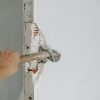
Purchasing a home is an exciting milestone in life, and for many individuals, it is a significant financial undertaking. Whether you are a first-time homebuyer or looking to upgrade to a new property, one crucial aspect to consider is the maximum mortgage amount you can qualify for. Quebec, with its unique real estate market and specific regulations, has its own set of guidelines when it comes to mortgage eligibility.
Understanding the maximum mortgage amount you can qualify for is important to determine your budget and plan your home-buying journey. Factors such as your income, credit score, and the property’s value play a pivotal role in determining the upper limit of your mortgage loan. In this blog post, we explore the factors that influence the maximum mortgage amount you can qualify for in Quebec.
What Is Mortgage Affordability?
Mortgage affordability refers to the extent to which an individual or household can afford to take on a mortgage loan to purchase a home. It involves assessing the borrower’s financial situation, including income, expenses, and existing debts, to determine the amount of mortgage they can comfortably manage.
Buy a house with a private loan
Understanding the Federal Stress Test
You’ll need to pass the federal stress test if you want to qualify for a mortgage in Quebec, so make sure your finances are on point. The stress test is a way for lenders to determine whether or not you can afford your mortgage rates in the event that interest rates rise. It’s important to note that the stress test applies to all borrowers, regardless of their down payment amount.
When it comes to passing the stress test, there are several key factors that will be taken into consideration. Your income and credit score play a big role in determining how much you can borrow, as well as your ability to make monthly payments. Lenders will also consider the length of your mortgage term and any property taxes that may be associated with your purchase.
To determine your maximum purchase price range, lenders will use a formula that takes into account these factors. This formula will help them determine how much they’re willing to lend you based on what you can realistically afford. Keep in mind that just because you’re approved for a certain amount doesn’t mean you should necessarily spend up to that limit. It’s always best to stay within your means and avoid taking on too much debt.
Factors That Affect Mortgage Eligibility in Quebec
It can be frustrating to discover that some factors beyond your control greatly impact your ability to secure a home loan in Quebec. One major factor is mortgage affordability, which determines the maximum mortgage amount you can qualify for. Generally, lenders follow a 32% rule where your housing expenses, including mortgage payments and property taxes, should not exceed 32% of your gross annual income. In addition, factors such as your credit score, the property you’re buying and your debt history influence your mortgage.
Credit Score
In general, lenders use credit scores as a way to evaluate a borrower’s financial health and their ability to repay the borrowed amount. When it comes to mortgage approval, most lenders in Quebec have a minimum credit score requirement. Typically, you need a credit score of at least 680 or higher to qualify for a mortgage. However, having a higher credit score can increase your chances of getting approved for more substantial borrowing amounts at lower interest rates.
Improving your credit report is crucial if you want to maximize the mortgage amount you can qualify for in Quebec. While it may take some time to build your score through responsible borrowing habits, the continuous credit checks are worth it if it means securing an affordable home loan with favorable interest rates and terms that meet your needs and budget.
Type of Property
Lenders tend to be more cautious when financing certain property types, which could limit your purchasing power. For example, if you are interested in purchasing a single-family home or condominium unit located in a desirable neighborhood with strong property values, you may be able to qualify for a higher mortgage amount. On the other hand, if you are looking at purchasing a multi-unit rental property or commercial space that may require substantial renovations or repairs before it can be occupied, your maximum mortgage amount may be lower.
Another factor that can impact your maximum mortgage amount is the purchase price of the property itself. Lenders will generally look at how much money you intend to borrow compared to how much the property is worth when determining whether or not to approve your loan application. If the house price exceeds what they consider reasonable based on current market conditions, they may be hesitant to approve your loan.
Location can also play a role in determining both housing costs and potential future resale values. Properties located in highly sought-after areas close to amenities such as parks, schools, and public transportation tend to command higher prices than those located further away from these conveniences. As such, lenders may adjust their lending criteria based on where the property is located since this information provides context around its overall value and future earning potential.
Debt-to-Income Ratio
When applying for a mortgage in Quebec, you’ll need to keep your debt-to-income ratio (DTI) in check if you want to increase your chances of getting approved. Your DTI is the percentage of your monthly income that goes towards paying off debt. Mortgage lenders use this ratio to determine whether you can afford a mortgage loan payment on top of other debt expenses such as personal loans.
To qualify for the maximum mortgage amount possible, it’s recommended that you have a DTI of no more than 43%. This means that less than half of your monthly income should be going towards paying off debts like credit cards or car loans. If your DTI is higher than this, it may be challenging to get approved for a mortgage.
Before applying for a mortgage, it’s essential to calculate your DTI using online tools or mortgage affordability calculators provided by lenders. This will give you an idea of how much you can realistically afford while still maintaining a healthy DTI ratio. Keep in mind that some lenders may have stricter requirements when it comes to DTI ratios, so it’s best to shop around and compare offers from different lenders.
Employment Status
Your employment status can greatly impact your eligibility for a mortgage in Quebec. Mortgage lenders typically look at your monthly income and debt payments to determine how much you can afford to borrow. If you’re employed full-time with a steady annual household income, you may be eligible for a larger mortgage amount compared to someone who is self-employed or has an unstable source of income.
When applying for a mortgage in Quebec, it’s important to provide detailed information about your employment history and current job status. This will help the mortgage provider assess your ability to make regular mortgage payments on time. A pre-approval from a mortgage broker can also give you an idea of how much you may qualify for based on your employment status and other financial factors. If you have an irregular income or are self-employed, qualifying for a mortgage in Quebec may be more challenging. You may need to provide additional documentation such as tax returns or business financial statements to prove your income stability and creditworthiness.
Savings and Down Payment
When it comes to getting a mortgage, your savings and mortgage down payment play a crucial role in determining the maximum amount you can borrow. The higher your down payment, the lower your monthly housing cost will be, as you’ll be borrowing less money from the bank. In Quebec, mortgage lenders typically require a minimum down payment of 5% of the purchase price of the home. However, if you’re looking to avoid paying for mortgage insurance, which is required by law for loans with less than 20% down payment, you’ll need to save at least 20% of the maximum price you can afford.
Maximizing Your Mortgage Eligibility in Quebec
Your maximum mortgage amount will depend on several factors, including your income, debt payments, interest rates, and property taxes. To maximize your eligibility, start by reviewing your credit score and paying down any outstanding debts.
Next, consider increasing your income through side hustles or seeking a higher-paying job. Lenders will be more likely to approve a larger mortgage if they see that you have a stable income that can cover monthly payments. Additionally, try to save for a larger down payment as this can increase the likelihood of getting approved for a bigger loan.
When looking at properties in Quebec, keep in mind that certain areas may have lower property taxes or better interest rates than others. It’s important to do your research and compare different options before making an offer on a home. Working with a trusted mortgage broker can provide valuable insights on maximizing your eligibility and finding the best rate possible.
Overall, boosting your eligibility for a maximum mortgage amount in Quebec requires careful planning and attention to detail. By improving your credit score, increasing income streams, saving for a larger down payment, and researching different properties and lenders, you’ll be well on your way toward securing the home of your dreams!
Mortgage Services
If you have done everything possible to maximize your mortgage eligibility and are still being declined by lenders, applying for a private loan or consolidating your debts is the ultimate solution. Everyone has different financial situations, meaning traditional routes of home buying do not work for everyone. At Refinancement Hypothécaire, our mortgage experts can work alongside you to create a plan that suits you.





